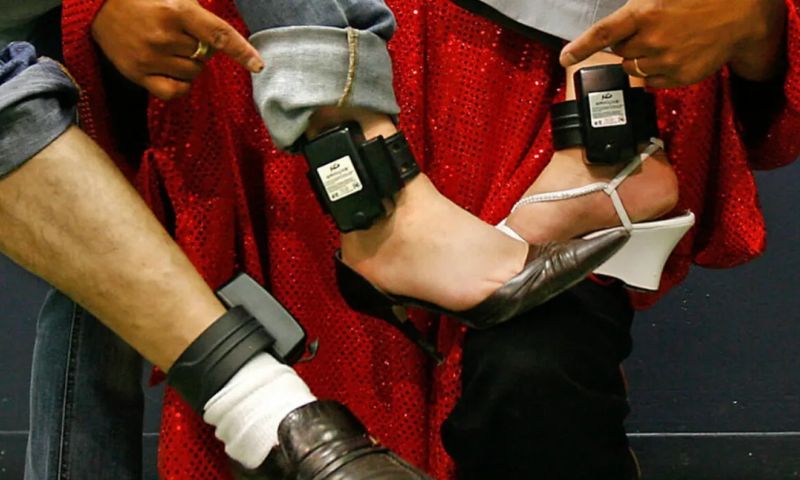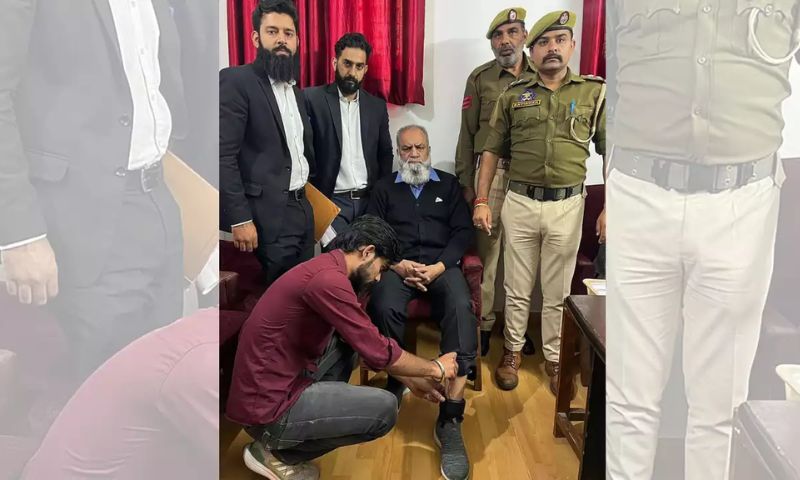SRINAGAR: In a concerning development that raises serious questions about privacy and personal freedom, the Modi-led Indian government has devised a plan to employ GPS tracker anklets for monitoring the daily activities of individuals in occupied Jammu and Kashmir.
This initiative, reported by the Kashmir Media Service, points to an alarming intrusion into the lives of the Kashmiri people, driven by a perception that virtually every individual in the region is viewed as either a freedom fighter or a supporter of the freedom struggle.
The concept revolves around the deployment of GPS tracker anklets, wearable devices securely fastened around an individual’s ankle, designed to track and monitor their movements throughout the occupied territory. This invasive system has raised significant concerns about the violation of personal freedoms, privacy, and civil liberties, as it grants authorities the ability to surveil and monitor individuals without their consent.
READ ALSO: Israel Intensifies Gaza Strikes Despite Ceasefire Calls
The implementation of such technology has been justified by officials, asserting that the devices were introduced following an order from a Special National Investigation Agency (NIA) Court. This legal cover, however, prompts questions about the scope and boundaries of such surveillance measures and whether they adhere to principles of due process and respect for individual rights.
This move underscores the broader issues surrounding civil liberties, surveillance, and the protection of personal data in the region, and it has sparked a debate about the balance between security concerns and individual freedoms. Concerned parties, including human rights advocates and privacy activists, have voiced their reservations about the implications of such measures and their potential impact on the lives of the Kashmiri people.
The use of GPS tracker anklets to monitor daily activities raises questions about the extent to which surveillance can encroach upon the privacy and fundamental rights of individuals. It also underscores the importance of upholding legal and ethical standards in surveillance practices, particularly in areas of conflict and political tension. The situation calls for a nuanced and balanced approach that safeguards both security interests and the rights of individuals, ensuring that personal freedoms and privacy are respected.

























